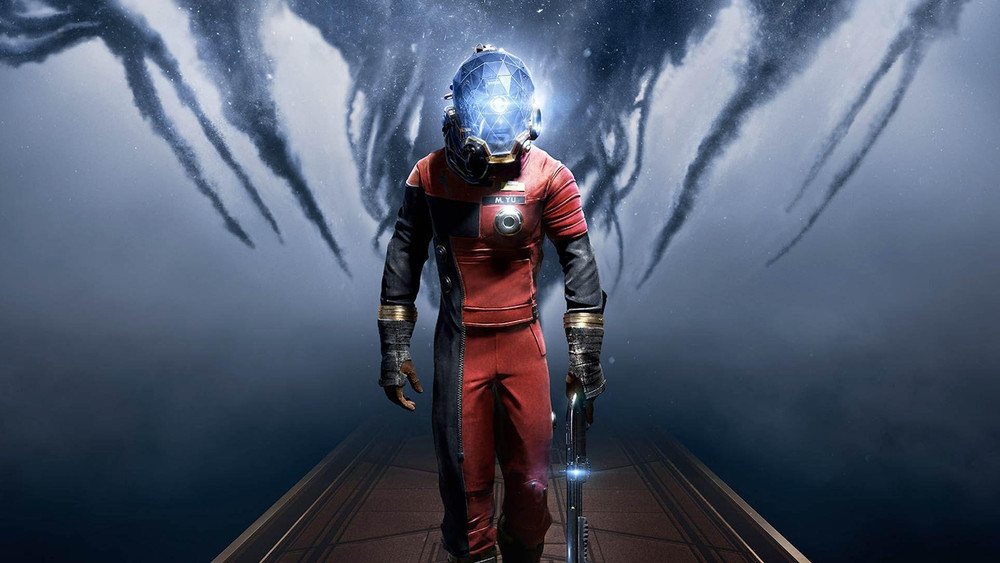Never before have those three words – “Would You Kindly?” – had such an impact on a video game. Bioshock delivered me a rock solid ride that was just long enough, and touched me at a weak spot: narrative in video games. This narrative proves a lot, and puts just about every other one in a video game to shame. And yes, that includes Half Life 2 and Portal, who both have been critically acclaimed for their great storytelling.
“Hurry, Mister B!”
Bioshock is a first-person shooter featuring the ever-so-popular “silent protagonist”. In layman’s terms, this protagonist doesn’t speak throughout the entire game (one line excluded). Because the action is first-person, this is supposed to raise our immersion in the game: we are no longer supposed to identify ourselves with Mr. Angsty Teen #35 (I’m looking at you, Square Enix), but we can just imagine our little protagonist the way he is.
In Bioshock – much like in Half-Life 2 – our main character has a story, however. A story cleverly implanted in the convoluted web of storylines that is… well, Bioshock: a story that leaves behind all consensus on what a storyline in a first person shooter should look like. No, in this game, there are no aliens, no UFOs, no demons from hell… there is just the race of men, and their fear. The fear which caused people to run and hide on the bottom of the ocean, in a place named “Rapture”, experimenting with genetic experiments.
The story is all around you; even though you are never talking, your surroundings are. As you venture through the underwater world that is Rapture, you find audio diaries, get calls, hear music, see posters on walls, look outside the window… This is a very sensoric game to say the least: it speaks to your senses, and even if you’re not really noticing anything in particular, you’re always noticing some things. Writings in blood splattered accross a wall. A record player playing Buddy Holly. There’s just so many little things in this game that makes every other game feel incredibly stale storywise. It just goes to show that the medium of video games really isn’t used to any truly outstanding storytelling. Bioshock is like a film by Tim Burton, in which the smalles details has been designed especially for the experiene. No room is the same, ever.
Shooting Bees
But what about gameplay? Bioshock is truly a game of this generation: it’s challenging, rewarding and almost never frustrating – three traits good games these days have to have (unless they are especially made for one trait – being especially frustrating for example). With the exception of one (fairly easy) moment, you can never truly die. Dieing takes you back to the nearest “Vita Chamber”, where you are revived. you get to keep all your weapons, plasmids… no penalty whatsoever. This keeps this first person shooter from becoming the next best Quickload fest.
On the other hand, you are out of ammo a lot, which can get pretty frustrating at times. It should be noted however that about half of your arsenal – your “plasmids”, tonics you insert into your veins for special powers – don’t run on ammo and can generally be used a lot longer. Yes, they run on “EVE” (Bioshock’s fancy word for “that blue bar”), but I never had any problems maintaining my EVE level – as opposed to my ammo. The downside to this method was that plasmids tend to be more crowd control and less damage. And in a pickle, you’ll truly swear that you can keep freezing your enemies or send bees at them ad infinitum but never truly kill them. Alas, my plan on playing the entire game with only killer bees soon seemed to cumbersome to bother.
A free man chooses
Shooting things will only get you so far. In order to gain more powers aside from your plasmids, you need to gain a thing called ADAM. Adam enhances your body, giving your extra defensive or offensive abilities, more health, more EVE, … You can harvest it from “Little Sisters” throughout Rapture, and this is where the moral dilemma sets in. Little Sisters are, as you have probably already figured out, little girls. Upon getting to one, you have the option to either harvest it or rescue it – the latter results in fewer Adam for you to spend. On the other hand, it does make you feel better about yourself. Every little sister is in turn protected by a Big Daddy; you have to get through the Big Daddy in order to get to that sweet, delicious Adam. Big Daddies take quite a punch, and you’ll have to be quick and resourceful in order to take them down.
So you can either harvest, rescue little sisters, or even choose to leave them alone. The key word is choice; a key word that swiftly summarizes the entire game: you’re free to choose what you do. You can play it passively, relying on crowd control while sneaking in a corner; or you can go all-out damage. The choice is up to you – and who knows? Trying something different might make for a wonderful second playthrough.
The Sweat of Your Brow…
Bioshock is more than a videogame. Bioshock is a piece of contemporary literature – or at least based off of it (Ayn Rand). It perfectly summarizes the spirit of the people in the first half of the twentieth century: a time where insecurity and fear of nihilism within people led to belief in charismatic leaders who would without a doubt create a perfect society. A society where everyone would be pretty, healthy and smart. More than fifty years later, we of course have long since realized that a society like this is impossible. Bioshock, however, manages to perfectly capture the mood of the era without mocking it. And it is this strange kind of seriousness towards the era and its quirks that makes Bioshock the closest thing to literature, and thus “art”, to date.
And while we wait for a game that will rival this one in its greatness, we might as well ponder the answer to the following question: “Is a Man Not Entitled to the Sweat of His Own Brow?”



